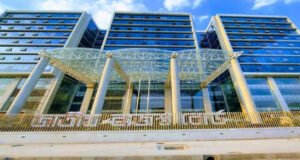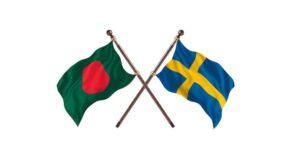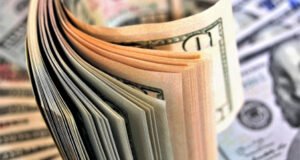
But around 40 attendees are understood to have pulled out amid allegations the country was behind Saudi journalist Jamal Khashoggi’s killing.
Prominent Saudi critic Khashoggi vanished on 2 October after visiting the Saudi consulate in Istanbul.
Turkish authorities allege he was killed in the building by Saudi agents. On Monday, Saudi Arabia blamed Khashoggi’s death on a “rogue operation”.
BBC Middle East journalist Sebastian Usher, who is in Riyadh, says while the “big names may have pulled out, hundreds are still attending — in some cases representing the very companies whose bosses decided it was no longer expedient for them to attend”.
” The talk among delegates is of pragmatism, that there is a big future at stake in Saudi Arabia and this obstacle — however shocking and overwhelming — will eventually be overcome.”
What is it?
The so-called “Davos in the Desert” is a three-day event from 23 to 25 October organised by Saudi Arabia’s sovereign wealth fund.
The conference is a forum for business figures, politicians and civic society groups to discuss topics related to economic development, including technology, global governance and the environment.
The first FII, held last year, featured discussions on artificial intelligence, cryptocurrencies and climate change.
Saudi Arabia’s Crown Prince Mohammed bin Salman also announced the investment of $500bn (£381bn) in a new city and business zone.
The conference aims to attract more foreign investment into Saudi Arabia and is an opportunity for companies to build relationships and secure lucrative contracts in the Kingdom.
It’s part of the country’s “2020 Vision”, an economic plan to diversify Saudi Arabia’s economy and reduce its reliance on oil revenues.
The Kingdom is currently one of the world’s largest oil producers but foreign investment has dropped in recent years. According to the UN, investments came to just $1.4bn last year, down from $12.2bn in 2012.
Who’s dropped out?
Organisers said more than 150 speakers and moderators were due to attend the event.
At least 40 attendees have said they’ll no longer be going. These include the chief executives of JP Morgan, Siemens and Blackrock, and IMF head Christine Lagarde, many of whom attended the event when it was first held last year.
Sir Richard Branson has also halted talks over a $1bn (£756m) Saudi investment in Virgin.
Several media outlets have withdrawn their support too, including Bloomberg, CNN and the Financial Times.
Who’s going?
A page with a full list of confirmed speakers has been removed from the conference’s website.
Consultancy firms McKinsey, PWC, Ernst & Young, Deloitte, BCG, Oliver Wyman, and Bain & Company are all named as sponsors of the event, along with research company SWFI.
None responded to questions about whether or not they had plans to withdraw.
The majority of initially-confirmed speakers are still attending including Pakistan’s Prime Minister Imran Khan, PepsiCo’s vice-chairman Mohmood Khan and George Atta, global smart city leader at Ernst & Young.
The BBC also understands that while several high-profile guests have withdrawn their support, representatives from their businesses will still be present at the conference.
What have governments said?
Several governments have pulled attendees from the conference including ministers from France, Australia, New Zealand and the Netherlands.
UK International Trade Secretary Liam Fox has also withdrawn from the event.
US Treasury Secretary Steven Mnuchin will not attend the conference, but has said he will still be in Riyadh for a meeting to combat terrorism financing.
Simon Paul Collis, the UK’s ambassador to Saudi Arabia, will still be attending, along with Simon Penney, Britain’s Trade Commissioner for the Middle East, Afghanistan and Pakistan.
Meanwhile, German chancellor Angela Merkel has also said Berlin will suspend exports of military equipment to Saudi Arabia whilst investigations continue into the disappearance of Khashoggi.
Germany’s Economy Minister Peter Altmaier has urged European nations to join them. Last month, Germany approved the sale of €416m(£367.7m) worth of arms sales to Saudi Arabia.
 Weekly Bangla Mirror | Bangla Mirror, Bangladeshi news in UK, bangla mirror news
Weekly Bangla Mirror | Bangla Mirror, Bangladeshi news in UK, bangla mirror news







